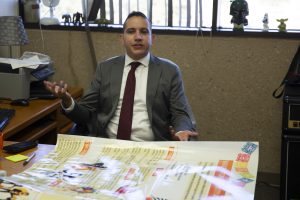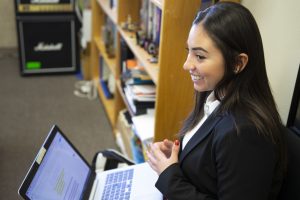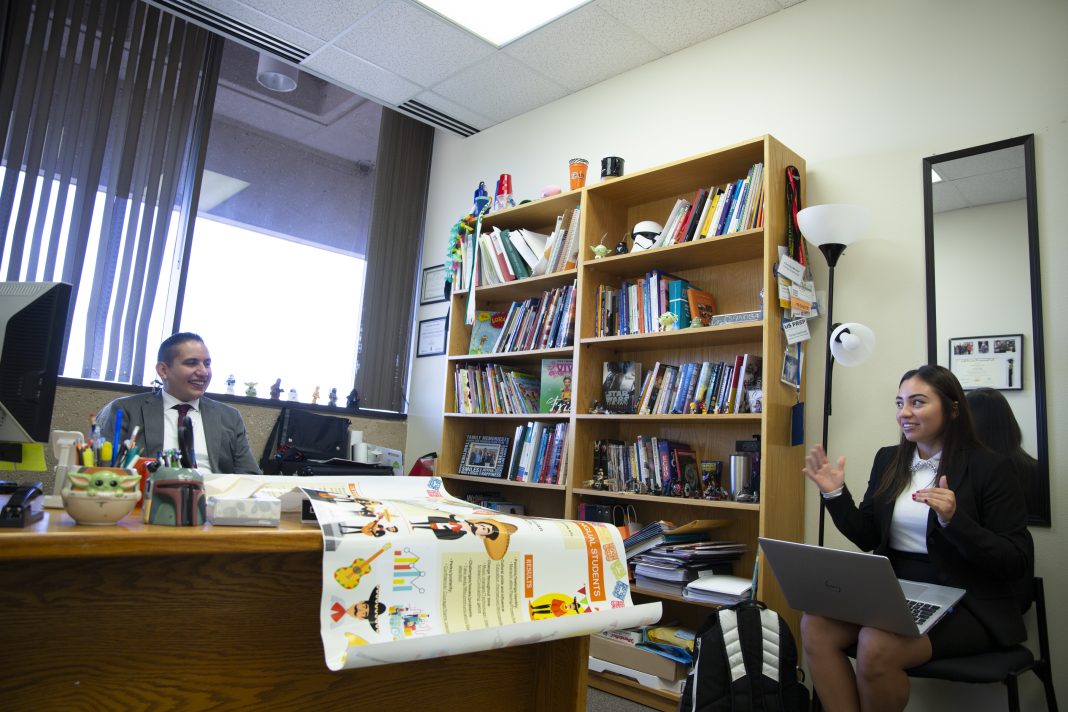A University of Texas Permian Basin professor and a graduate student want to show the world what Mariachi mean to Hispanic culture and identity.
“We actually want to make sure that our students feel proud of who they are,” Tomas Espinosa, assistant professor of ESL/Bilingual Education, said.
Espinosa and Monika Cantu, who is working toward a master’s in business administration, have presented their study locally, nationally and internationally through organizations like the National Association for Bilingual Education.
Cantu said many people move to Odessa because of the number of Hispanics.
“One of my friends moved to West Texas State University, which is in Canyon. He decided to come back here to UTPB,” because he didn’t identify with people in the Panhandle, Cantu said.
“He did not feel comfortable surrounded by people who do not speak the same language as him, or have the same similarities in the way of thinking, or because of the type of culture as well. I’m a Mexican-American and I would love to contribute to show how important it is for people to show their culture and wherever they’re standing at the end of the day,” Cantu said.
“We tend to embrace our culture by helping others and cooperating with whatever we can at the end of the day. But also we’re embracing our past and knowing our roots,” she added.
Hispanic people should be proud of their heritage and carry it with them wherever they go.

At UTPB, Espinosa said, they’re big on making sure that students feel included. Getting involved in activities outside of class also helps students network.
“Diversity is one of our strengths. Sometimes the students feel that because they come from a different background, or they come from a different culture, sometimes they feel like they don’t belong. But I always emphasize this with my students, because I teach a bilingual education, I tell them … you have to be proud of who you are,” Espinosa said.
“By being proud of your culture and even being bilingual (you) will be being able to speak different languages. That opens the doors for more opportunities for you. It has a lot of benefits socially, professionally, and even culturally,” he added.
Cantu said Espinosa asked her to do some research about Mariachi, she was eager to jump on board. She added that she wanted to represent the culture and embrace it.
She said it would help students understand the importance of Mariachi, the role it plays in Hispanic culture and how it could help educators see the value of music and arts.
When people see you dressed in certain clothing or hats, they know it’s from Mexico, but they may not know the history, what it involves, the songs, the music and the traditions.
“I was not aware of specific details that now I’m more into, so that’s why we’re excited to (do) the research and promote it to other people,” Cantu said.
Clothing and color can also represent regions in terms of culture.

She has also been researching Ballet Folklorico.
Espinosa said when people wear the Mariachi apparel and hats they feel powerful and really connected to their culture.
Cantu will be presenting on Ballet Folklorico at a conference in Oregon. She has learned a lot about it as well in her research.
Espinosa said their avocation can become not only part of their lives, but a profession.
“Some of the girls told me, oh, yeah, I’ve been dancing since I was like 3 or 5. I was like, you’re 20. Wow, that’s amazing. They were happy that they were able to do (it) since they were little and then they went to college and the university has the program here and they were able to continue doing that,” Cantu said.




